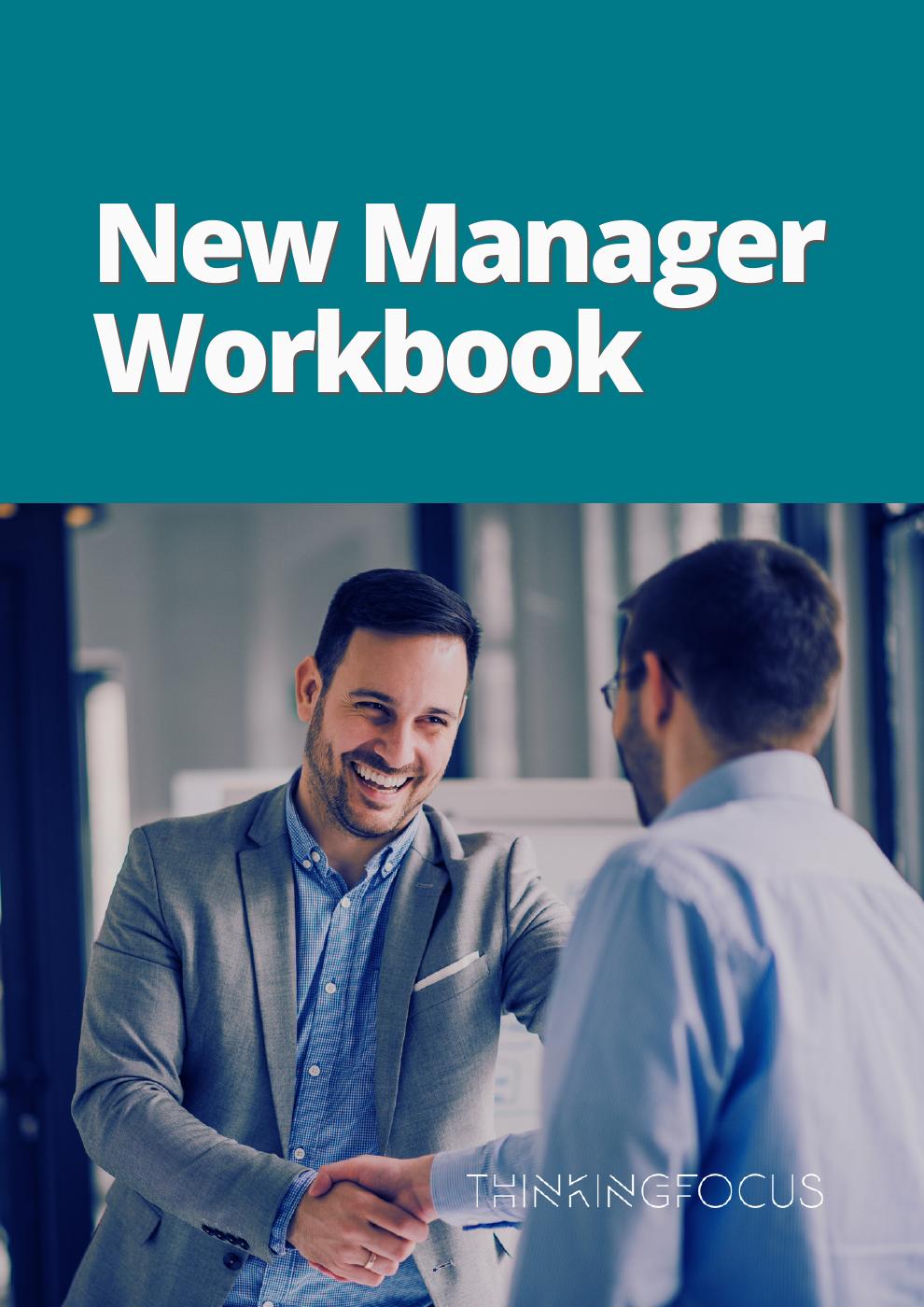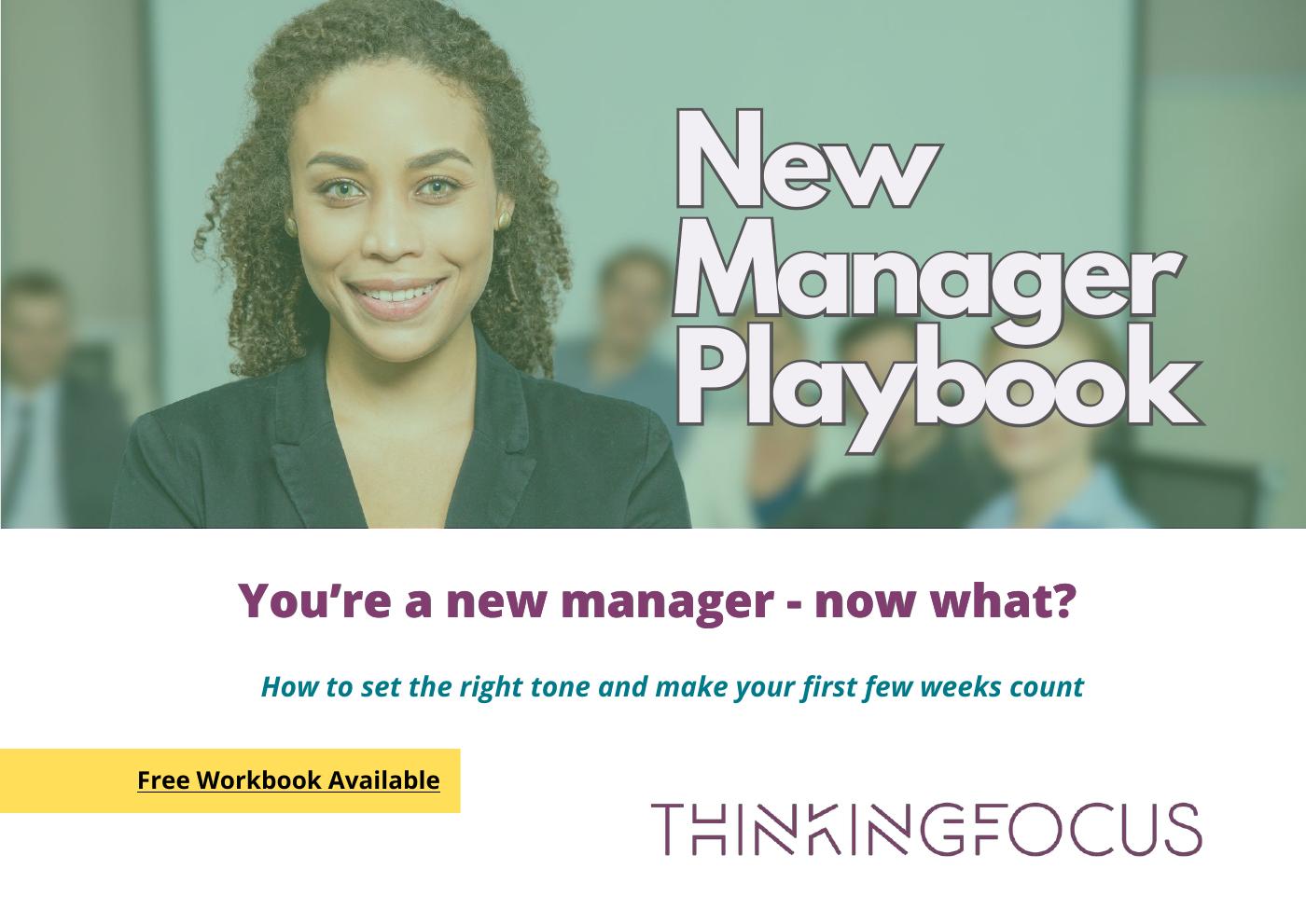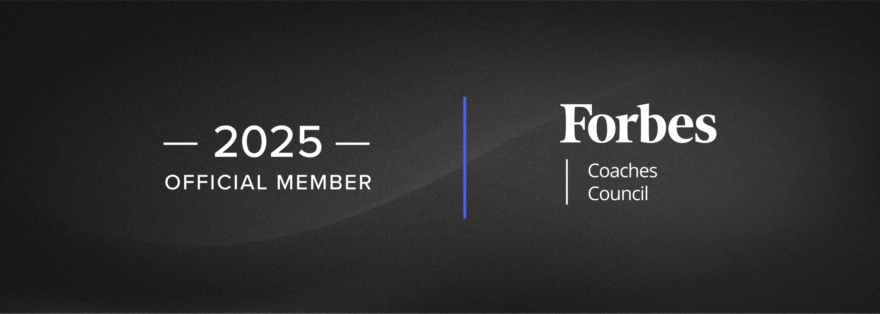The New Manager Workbook is the perfect companion to the New Manager Playbook. Turn your learning into practical application of the shared tools, advice and guidance. Download links on page 2
The Playbook for New Managers
How to set the right tone and make your first few weeks count
Becoming a new manager can be daunting; there are many practical things to do, and before you know it, you’ll be deep in the detail. You will find it hard to resurface and ensure you’re focused on the right things. This playbook guides you through your early weeks to get you off to the best possible start.
Why is this leadership role harder than my last one?
Every leadership role you undertake is slightly different. Different people, different problems, different cultures, maybe just a different time and place. Our ability to lead can be as much about the context or situation we find ourselves in as it is the skills we bring to the party!
As part of our series of questions commonly raised in our coaching practice, Ricky and Paul explore the situation that many people find themselves in: doing the things that have always worked for them and finding that, for some reason, this time,, they do not get the outcomes they envisaged.
The Untapped Power of Collaboration
Despite its potential to significantly enhance growth and efficiency, many organisations struggle to make cross-functional collaboration work. The obstacles—ranging from competing agendas and egos to miscommunication and untested assumptions—can derail even the best intentions. However, by prioritizing stakeholder engagement early, fostering diverse perspectives, and addressing challenges proactively, organizations can unlock substantial improvements in performance. This executive summary highlights the critical importance of collaboration, offering actionable strategies to navigate common challenges and achieve greater cohesion and productivity.
Improving cross-functional relationships and collaboration arguably represents one of the most significant organisational growth and improvement opportunities – why, then, are organisations not addressing this?

Perhaps it’s not so surprising when you consider the layers of competing agendas, egos and infighting, conflict, misinformation, and backchannelling. Added to that, there are the self-imposed elements of assumptions, personal limitations, and poorly articulated business cases that, despite having merit, never see the light of day.
I remember my first major change programme, where an entire team was ignored because we didn’t think the change would affect them. We overlooked their wants and needs for this significant change. We assumed they’d be fine and would get on with it. The decision was a mistake; the Department Head used their influence to block the change for their team. The project team had to regroup and rethink. This delayed the project, and chunks of the scope had to be removed to hit the delivery date.

Over the years, we have built and delivered countless leadership programmes for organisations across the globe. We include a business challenge to help with the application of learning, exposure to the wider business, and delivery of value back to the business. I love working with leaders, yet it astounds me that they never seem to grasp the importance of engaging stakeholders. We even share the experiences of previous groups’ successes and failures. Yet despite these warnings, they still trip over the same things as those that have gone before.
Business Challenge in Action
We see it constantly; take a recent business challenge we ran. One project group identified a business-wide project that could transform employee engagement. They formulated compelling business benefits: increasing productivity, boosting employee retention, and promoting the brand in local communities.
The group got their plan together and ran it by their mentor; they were all set and approached a large department representing a third of the workforce. Having them on board would make a wider rollout easier. When they presented their ideas to the Head of Department, they assumed their excitement would be shared, but they hit a brick wall. The Head of Department highlighted obstacle after obstacle, insisting they go away and fix it. The group were understandably disheartened.
In the learning review, we explored what they could have done differently. How might they have engaged the stakeholders differently, gaining the department’s perspective? What assumptions did they make? How might they have felt had the boot been on the other foot?
This experience is a microcosm of how organisations do business every single day, and there is immense learning on offer. Failing to collaborate and engage stakeholders causes unnecessary delays, missed milestones, wasted time, effort, and resources.
We are all guilty of making assumptions, from whether someone will get involved or not to whether someone has the time, knowledge or skills, or not to be able to help. We may not even like them or want their help, even though this may be us cutting our noses off to spite our faces. Our egos can get in the way.
We avoid ‘difficult’ personalities; we circumvent them or bury our heads in the sand, hoping they won’t be an issue. But inevitably, they are, and this creates roadblocks and wasted time. If someone ignores your needs or fails to engage you, you will feel like making things difficult.

Learning from Experience
No one likes changes imposed on them; we want to be involved, to feel that you have listened, heard and understood our perspective. Involving me in change in this way helps to gain my buy-in and increases your chances of success. The ‘people factor’ is a major cause of change programmes failing to achieve their intended outcomes. So, what’s the answer?
When the business challenge group reflected, they quickly realised they should have engaged and involved their stakeholders earlier, making buy-in easier. They recognised their excitement for their project, but it was not matched by the department head because they had their own issues and priorities to focus on. They weren’t excited; instead, they felt ambushed. Involving them earlier would have helped them feel the time had been taken to understand their department’s challenges, and they might have offered solutions. They may still have resisted, but the plan could have been adapted much earlier. Instead, they lost time, had to replan, and took longer to realise the project’s benefits.
Consider my experience of large-scale projects. If we had not cut corners, we could have explained what was happening, understood stakeholder needs and engaged others in making it work. This would also have avoided us delivering a substandard result.
In my experience, not engaging stakeholders well or, worse, ignoring them will catch you out when you least expect it. It’s far better to be proactive; you may as well spend more time getting them on board early rather than trying to recover later.
There are no shortcuts to involving people, so why not do it early and confront the issues up front? This way, you can engage with them on the solution and find ways to modify your approach for mutual success.
For many businesses, the ability to collaborate and execute effectively is underwhelming at best, and yet they still get results! Imagine if they got their act together and collaborated better—they’d be unstoppable!

My key learnings over the years are:
- Explore who could help and who could get in your way.
- Engage stakeholders early, be proactive and build relationships.
- Start every interaction from their perspective – ‘seek first to understand’, as Stephen Covey says.
- Have a plan to influence others and mitigate potential blockers.
- Focus on the ‘why’ when presenting your ideas and goals/ Don’t get hung up on the how; be flexible and bring any conflict back to the ‘why’.
- Don’t do all the work; involve stakeholders in solving problems; they probably have a better view.
- Test, test and test assumptions, beliefs and biases.
- Be aware of your self-talk; your mindset, if not managed, will trip you up.
This article first appeared on Forbes.com on 5th September 2024
Ricky has been a regular contributor to the Forbes Councils since 2023, where he shares his perspectives on all things leadership, change, culture and productivity, all with Thinking Focus’ unique perspective on metacognition, or as we prefer to say, thinking about thinking.
Leading to Here with Jon Dawson
Meet Jon Dawson, a keen follower of his beloved Everton Football Club and the UK and Ireland Director of STAAR Surgical, a leading developer, manufacturer, and marketer of the EVO family of Implantable Collamer® Lenses (EVO ICL™). Their lenses provide visual freedom to patients, lessening or eliminating the reliance on glasses or contact lenses.
Jon’s inspiring career started in the family business, a local printer. He took it upon himself to go door to door to drum up business in his local area. He navigated various sales and management roles before taking the opportunity to lead STAAR’s strategy in the UK and Ireland.
Unlocking Leadership Potential: A Blueprint for Transformative Growth
As a leader of large teams and departments, you will know that leadership isn’t just about hitting targets and managing people. It’s about unlocking the potential within your teams and, just as importantly, within yourself. In an environment where the only constant is change, how you lead makes all the difference between just surviving and truly thriving. That’s why I’m excited to share our Leadership Blueprint—a powerful tool designed to help leaders like you break through the barriers that often hold you back and drive real, meaningful change.
Why the Leadership Blueprint Matters
In my experience working with organisations across various sectors, I’ve seen firsthand how easy it is for leaders to get caught up in day-to-day operations, often at the expense of strategic growth and personal development. The pressures of managing large teams and hitting KPIs can sometimes overshadow the importance of continuous leadership evolution. But the truth is, if you’re not growing, you’re stagnating—and so are your teams.
Our Leadership Blueprint addresses this head-on. It’s not just another leadership guide. It’s a strategic tool designed to help leaders navigate the complexities of modern business while fostering an environment where individuals and teams can excel.
What Sets Our Blueprint Apart
- 1. Mindset First: You will have encountered those moments when your own thinking becomes the bottleneck. Our Blueprint emphasises the importance of mindset as the foundation of effective leadership. It offers practical ways to shift our perspectives, challenging the self-limiting beliefs that can hold us—and our teams—back.
- 2. Actionable Change: While changing your mindset is critical, it’s equally important to translate those shifts into tangible actions. The Blueprint provides step-by-step guidance on how to embed these new ways of thinking into your daily leadership practice, ensuring that the impact is not just theoretical but real and lasting.
- 3. Alignment with Organisational Goals: Leadership is more than personal development; it’s about driving the organisation forward. Our Blueprint ensures that as you evolve as a leader, your growth is aligned with your organisation’s broader strategic objectives, creating a ripple effect that benefits everyone.
What You’ll Gain from the Leadership Blueprint
The Leadership Blueprint is for leaders like you— who oversee large teams and departments tasked with managing, inspiring, and driving transformation. Here’s what you can expect:
Self-Assessment Tools: Understand your current leadership strengths and areas for development with actionable insights focused on areas where you can grow.
Tailored Action Plans: Develop a personalised roadmap that aligns with your leadership aspirations and your organisation’s goals.
Insightful Case Studies: Learn from peers who have successfully implemented these strategies in real-world scenarios.
Continued Support: Access resources that keep you on track, ensuring your leadership journey is ongoing and adaptive to new challenges.
The Path Forward
Leadership is about more than maintaining the status quo, especially at the helm of large teams and departments. It’s about driving significant, positive change. Our Leadership Blueprint will support you, providing the tools and insights necessary to elevate your leadership game and, by extension, the performance of your entire team.
I encourage you to download the Leadership Blueprint today and discover how to unlock your leadership’s full potential.
This leadership blueprint is a powerful tool designed to help experienced leaders, those new to the role, and those aspiring to join the leadership ranks. It will help you break through the barriers that often hold you back and drive real, meaningful change. As a leader, you will know that leadership isn’t just about hitting targets and managing people. It’s about unlocking the potential within your teams and, just as importantly, within yourself. In an environment where the only constant is change, how you lead makes all the difference between just surviving and truly thriving.
Are You on Course to Hit Your Goals in 2024?
Imagine it’s the end of the year, and you’ve missed the mark.
How does that feel?
In this video, we walk you through four essential steps and 13 critical questions to ensure you finish the year strong. Whether you’re working toward a calendar year-end or another timeframe, this process will help you identify potential risks, boost your confidence, and set you up for success. Plus, I’ve got an invaluable resource for you at the end to make sure you achieve your goals every time.
Ready? Let’s go!
A Blueprint for Leaders and Leadership
This Leadership Blueprint is a powerful tool designed to help experienced leaders, those new to the role, and those aspiring to join the leadership ranks. It will help you break through the barriers that often hold you back and drive real, meaningful change.
As a leader, you will know that leadership isn’t just about hitting targets and managing people. It’s about unlocking the potential within your teams and, just as importantly, within yourself. In an environment where the only constant is change, how you lead makes all the difference between just surviving and truly thriving.
And if you want to see if you’re leadership ready, take the test now!
Why do I find giving feedback so difficult?
Feedback has been described as the breakfast of champions, but giving feedback can be one of the toughest things we have to do, with many people avoiding giving feedback if they possibly can.
In this, another podcast in our series of questions from coaching conversations, Ricky and Graham focus on why some people find it so difficult to give good feedback and how developing your technique around feedback is a vital leadership skill.
From why we find feedback so difficult, through to models and structures to make you better at feedback – if you want to help the people around you be better at what they do, then this podcast is for you.
Workplace Pressure That Triggers Your Threat Response and How to Take Back Control
At one time or another, you will face Workplace Pressure That Triggers Your Threat Response, and you will need to know How to Take Back Control #fight #flight
Ricky Muddimer shares eight workplace situations in this video that can trigger your threat responses. We react in different ways at different times and to different triggers. Recognising the triggers is the first step; having coping strategies is the next, unlocking a deeper understanding and discovering how to help yourself.












